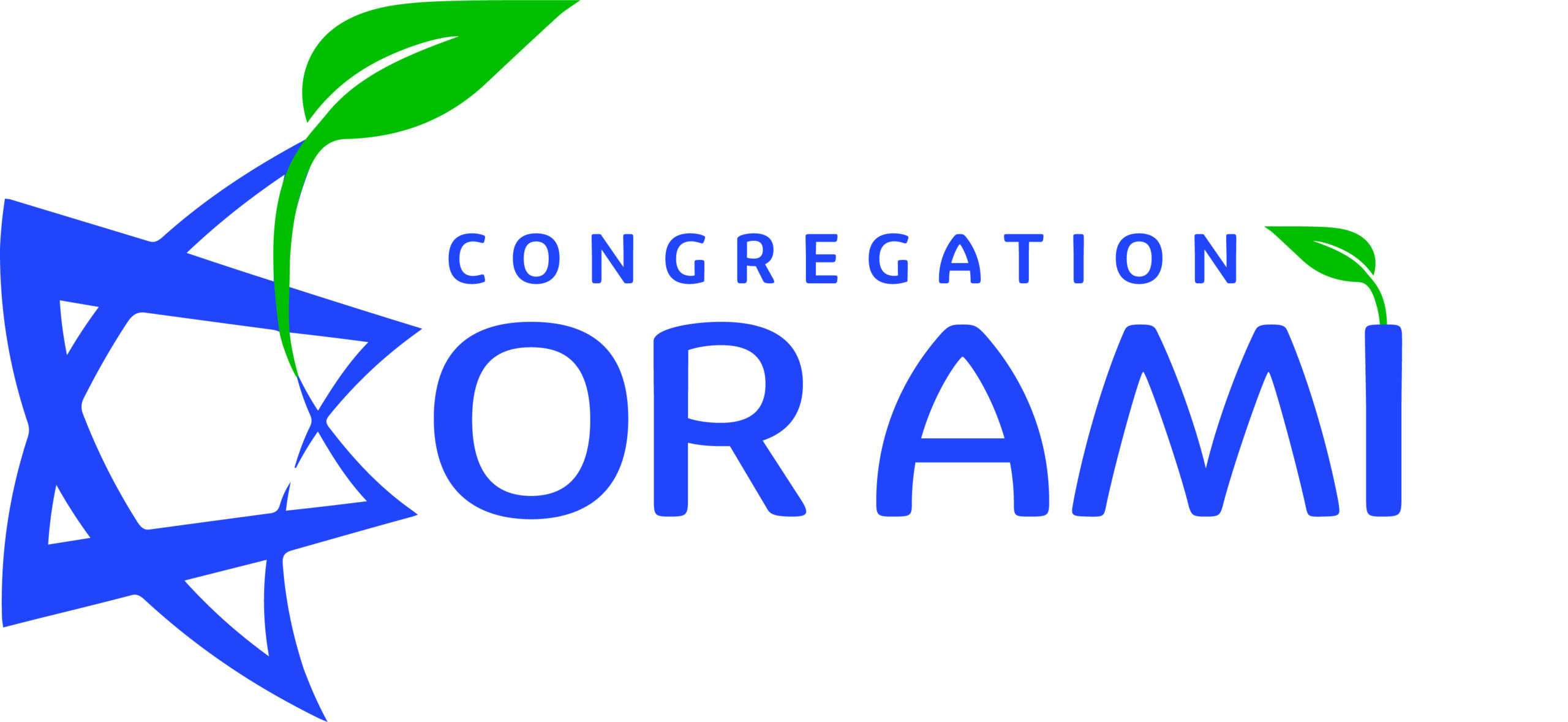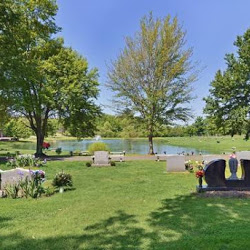The Or Ami Cemetery at Greenwood Memorial Gardens
12609 Patterson Avenue
Richmond, Virginia 23233
(804) 784-5214
We offer sites to members as well as non-members. Please consider your and your family members’ future needs. Pre-planning offers significant financial advantages and can help make a very difficult time a bit easier for your loved ones. For more information, please complete the Contact Request Form or call the Or Ami office at (804) 272-0017.
Non-Jewish Burials
- Mixed religion families may be buried together at the Or Ami Cemetery.
- Only non-Jews who are the immediate family of Jewish members of Or Ami can be buried in the Or Ami Cemetery with the Rabbi having discretion to respond with derech eretz (compassionate good sense) to particular situations concerning other relatives.
- Burial services will be led or overseen by Or Ami clergy.
- All burials shall be in conformity with the customs and traditions of Congregation Or Ami.
- Unless specifically stated otherwise, all rules that apply for the burial of Jews also apply to the burial of non-Jews.
Advanced Care Planning
We also recommend making your advanced care planning wishes known to loved ones. An organization called Honoring Choices offers helpful materials in coming up with your own plan for end-of-life care as well as beginning the conversation about this important topic with loved ones.
Funeral Homes
While the funeral home is the choice of the family, Or Ami has historically worked with Bliley’s Funeral Homes and Woody Funeral Home for Memorial Services and internments. Using a preferred and experienced funeral home can ease the pain of the family during a particularly trying time. These funeral homes are also particularly well-versed in Jewish funeral customs.
What to Expect at a Jewish Funeral
Before the funeral, typically the family will gather privately to tear a small black piece of fabric called a keria ribbon to symbolize how their hearts feel broken by the loss of a loved one.
Then a combination of Psalms, poems, and other prayers in Hebrew and English will be sung or read. The rabbi will usually deliver a eulogy, and a few family members or friends may share brief thoughts or stories about the deceased person. When it comes time for burial in the service, everyone present is encouraged to help with the burial process by using a shovel to gently place some earth over the casket as a sign of love and respect for the deceased. Near the end of the funeral service, the Kaddish prayer is recited by mourners. For more information, you can click here to read more about funeral customs on the Union for Reform Judaism’s website.
Shivah
Many Jews also decide to have a shivah minyan after the funeral. Shivah is the Hebrew word for seven and refers to a week or period of seven days immediately following the funeral, in which the community comes together to support mourners. This special prayer service is typically done in the evening at the mourner’s home with family, friends, and community members. It is traditional for friends and community members to bring food to the mourners and to share memories about the deceased person along with hugs and words of comfort.
For the first month after a loved one’s death (called the Sheloshim period, meaning thirty), many Jews also try to recite the Mourner’s Kaddish prayer on a regular basis. That might mean reciting this prayer each Friday night at Shabbat services or even every day. In the case of deceased parents, some will recite the Kaddish every day for eleven months.
Unveiling
Often around the first anniversary of a loved one’s death, families will gather for another ceremony called an unveiling. This service includes many of the same prayers that are recited at a Jewish funeral and offers loved ones a chance to share memories together. The core of this service consists of unveiling the gravestone inscribed with the loved one’s name. It is also traditional to place small stones during this ceremony at a loved one’s grave, similar to the way that many people leave flowers at the graveside.
Yahrzeit
Each year on the anniversary of a loved one’s death, it is traditional to remember the loved one by lighting a yahrzeit candle (available in the kosher aisle at most grocery stores) and reciting the Mourner’s Kaddish prayer. Most communities will observe the yahrzeit (anniversary) based on the Hebrew date, but some Reform communities, including Or Ami, follow the secular calendar to make it easier to remember. If you include your loved one’s yahrtzeit date on our Brit membership form, we will read your loved one’s name at the closest Friday evening service to their yahrzeit date. If you are interested in observing a loved one’s yahrzeit according to the Hebrew calendar you can use the HebCal date converter linked here.




